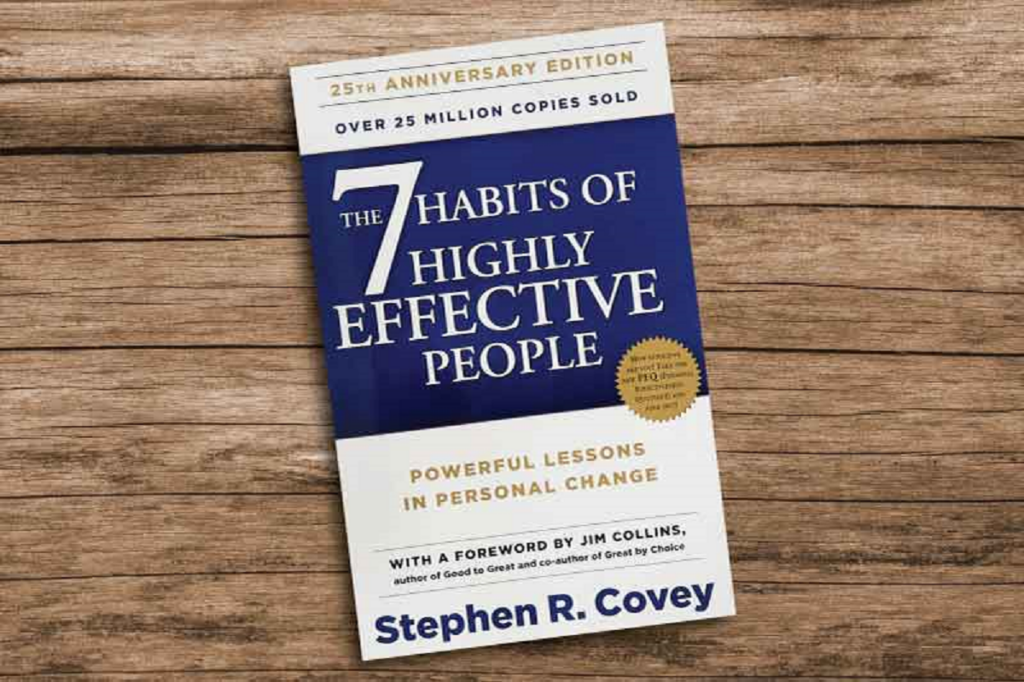Lesson 1: Be Proactive
The first habit Covey talks about is being proactive. This means taking responsibility for your own actions and choices.

Instead of blaming others or waiting for things to happen, proactive people take control of their lives.
They understand that they have the power to change their circumstances and achieve their goals.
Lesson 2: Begin with the End in Mind
The second habit is about setting goals and having a clear vision of what you want to achieve.
Covey encourages readers to think about their values and priorities, and to use these as a guide when making decisions.
Here book review of think and Grow Rich.
By visualizing their goals and working towards them, people can create a more fulfilling and purposeful life.
Lesson 3: Put First Things First
Once you have a clear vision of your goals, it’s important to prioritize your time and energy accordingly.
This means focusing on the things that are most important and letting go of distractions.
Covey emphasizes the importance of time management and self-discipline in order to achieve success.
Lesson 4: Think Win-Win
The fourth habit is all about collaboration and cooperation.
Instead of approaching situations with a competitive mindset, Covey encourages readers to seek mutually beneficial solutions.
By looking for win-win outcomes, people can build stronger relationships and create more opportunities for success.
Lesson 5: Seek First to Understand, Then to Be Understood
Communication is key to building successful relationships, both personally and professionally.
Covey stresses the importance of listening to others and trying to understand their perspective before expressing your own.
By practicing empathy and active listening, people can improve their communication skills and build trust with others.
Lesson 6: Synergize
Synergy is the idea that the whole is greater than the sum of its parts. Covey encourages readers to work together with others to achieve common goals.
By combining their strengths and talents, people can accomplish more than they could on their own.
Synergy fosters creativity, innovation, and collaboration, leading to greater success for everyone involved.
Here, in case if you want to start copywriting.
Lesson 7: Sharpen the Saw
The final habit is about self-care and continuous improvement.
Covey uses the metaphor of sharpening a saw to illustrate the importance of taking care of ourselves physically, mentally, emotionally, and spiritually.
By investing in our own well-being, we can increase our effectiveness and sustain our success over the long term.
Conclusion:
In conclusion, “The 7 Habits of Highly Effective People” is a timeless guide to personal and professional success.
You see, I learned 7 Lessons from the Book “The 7 habits of highly effective People”
Covey’s simple yet profound lessons are easy to understand and apply, making it a valuable resource for anyone looking to improve their life.
Whether you’re a student, a parent, or a business professional, this book offers practical advice that can help you achieve your goals and live a more fulfilling life.

Leave a Reply